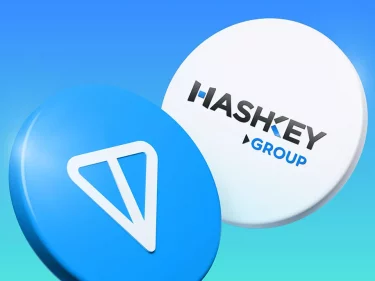
Protecting your identity and private data will only get easier with decentralized identity protocols.
Data breaches, fraud, verification bottlenecks, and fake credentials are some of the challenges we face with the current identification systems, and the centralization of data storage is majorly to blame.
Decentralized identity protocols can solve these challenges. Powered by the more secure blockchain technology, these protocols allow organizations to provide users with fraud-proof credentials and individuals complete control over their digital identity.
Here are the best decentralized identity protocols available for use right now.
1. Civic
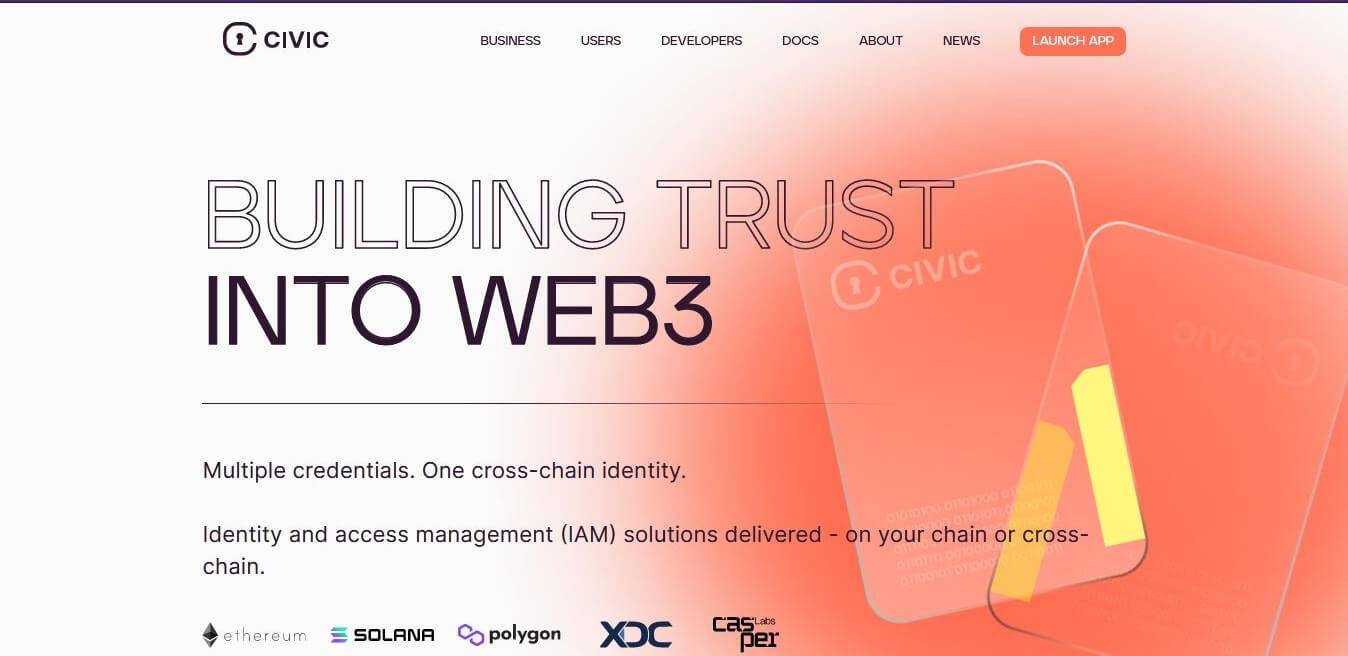
Civic is a blockchain-based identity system created to build trust by providing secure identity verification solutions for businesses, developers, and users in Web3. It offers various identity verification options, including CAPTCHA, liveness, uniqueness, age, government-issued ID documents, and OFAC compliance verification.
Its main product is the Civic Pass, a Soulbound token containing a user’s data on-chain, and it’s used to grant people access to services supported by the Civic protocol. Businesses needing identification and verification systems to establish user-trust benefit most from the Civic Pass.
Civic offers three types of passes; the Turnkey Pass, which gives users Civic’s verification services; the Hybrid Pass, which gives users the power to control which data they can share to prove compliance; and lastly, the Custom Pass, which empowers businesses to have sole control and access to their users’ data.
2. Ontology
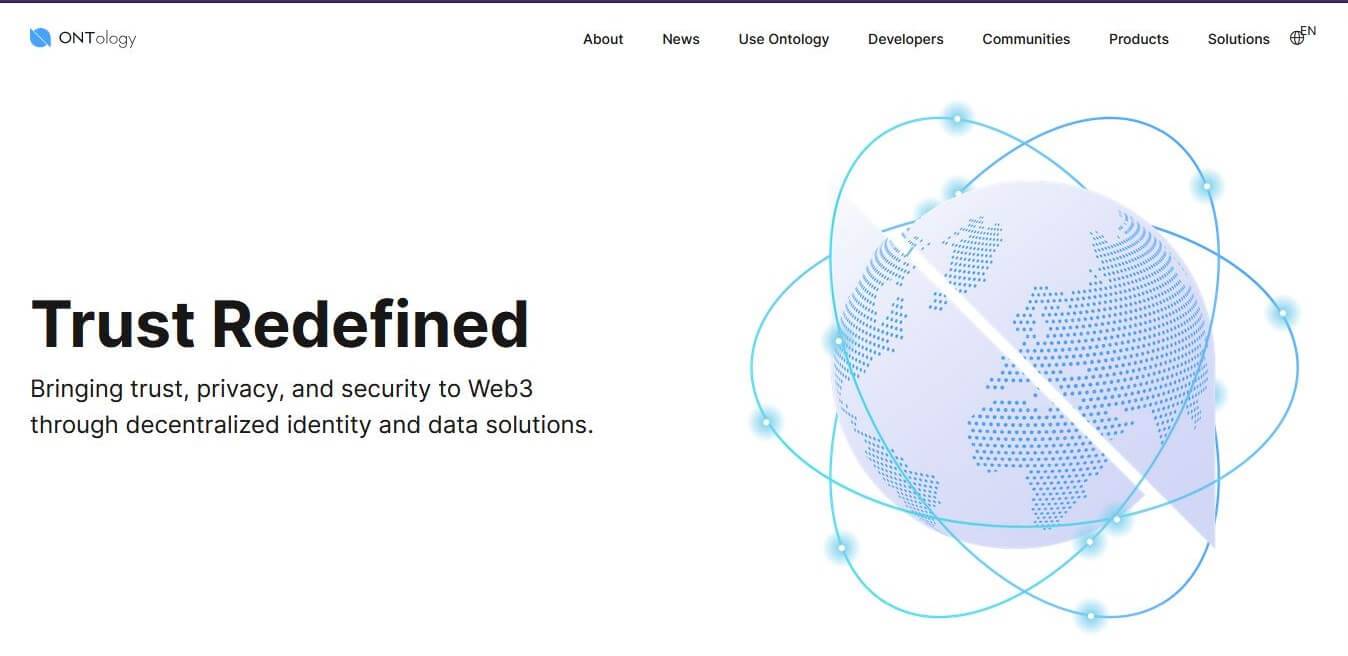
Ontology, launched in 2017, provides decentralized identity and data solutions for fostering privacy and security in the Web3 ecosystem. It’s a fast, flexible, low-cost blockchain designed for people and enterprises to use and build solutions according to their regulatory compliance needs.
ONT ID, the main Ontology component, is the protocol’s decentralized identity framework that offers users control over their well-encrypted personal data. Meanwhile, the ONTO wallet natively integrated with the ONT ID provides a secure and user-controlled environment for managing digital identity, data, and assets.
Ontology also offers a cross-chain DeFi lending protocol called Wing Finance, which has an inbuilt reputation-scoring system called OScore. This system enables users to engage in DeFi transactions and get under-collateralized loans based on their on-chain reputation.
3. BrightID
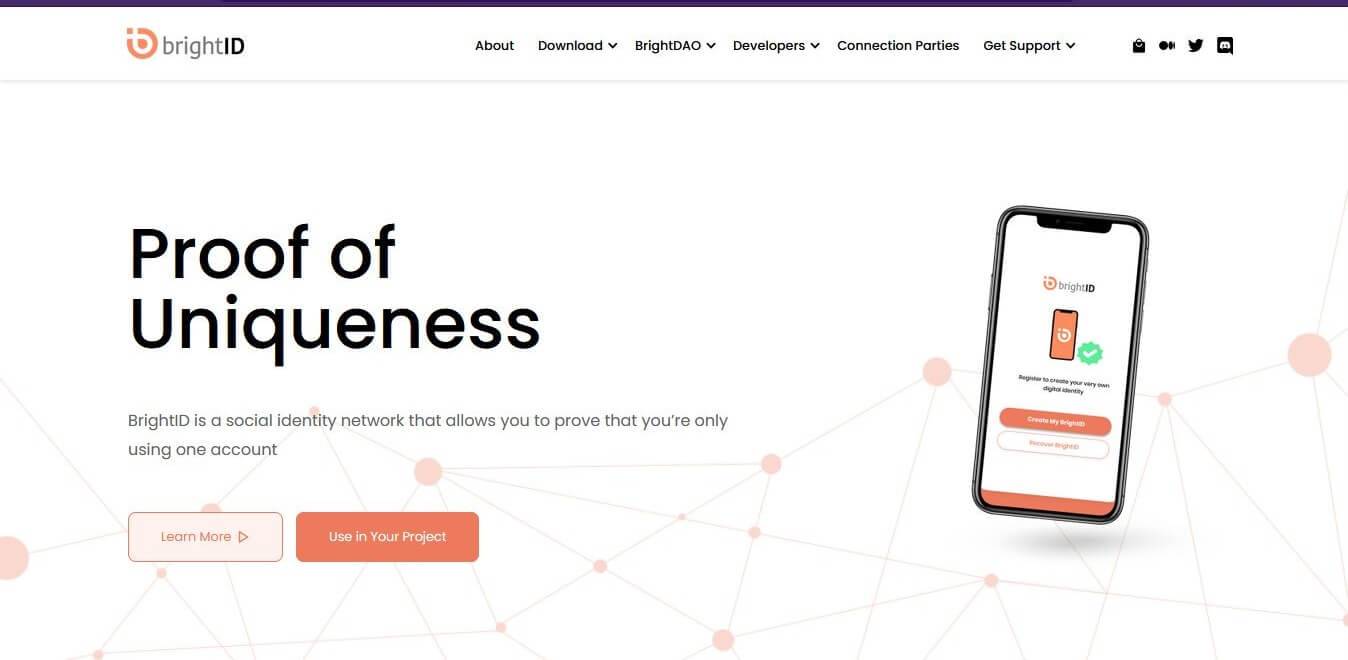
BrightID is an open-source blockchain-based platform on a mission to reform the identity verification system into one that can form the basis of a free and democratic society. It functions as a social identity network that creates social graphs for users, enabling applications to prove that individuals are not using multiple accounts.
The platform is non-invasive, i.e., users don’t need to provide personal information to prove their humanity. It’s also designed to be accessible to everyone, with ingrained principles of transparency and freedom of use so that many can benefit from its services.
BrightID’s main product is a mobile app that allows users to interact with the network and all supported applications. Users can receive and send verifications to applications and recover their signing keys if lost. In addition, users can connect and form primary or seed groups, which are fundamental in fighting Sybil attacks in the network’s ecosystem.
4. Idena
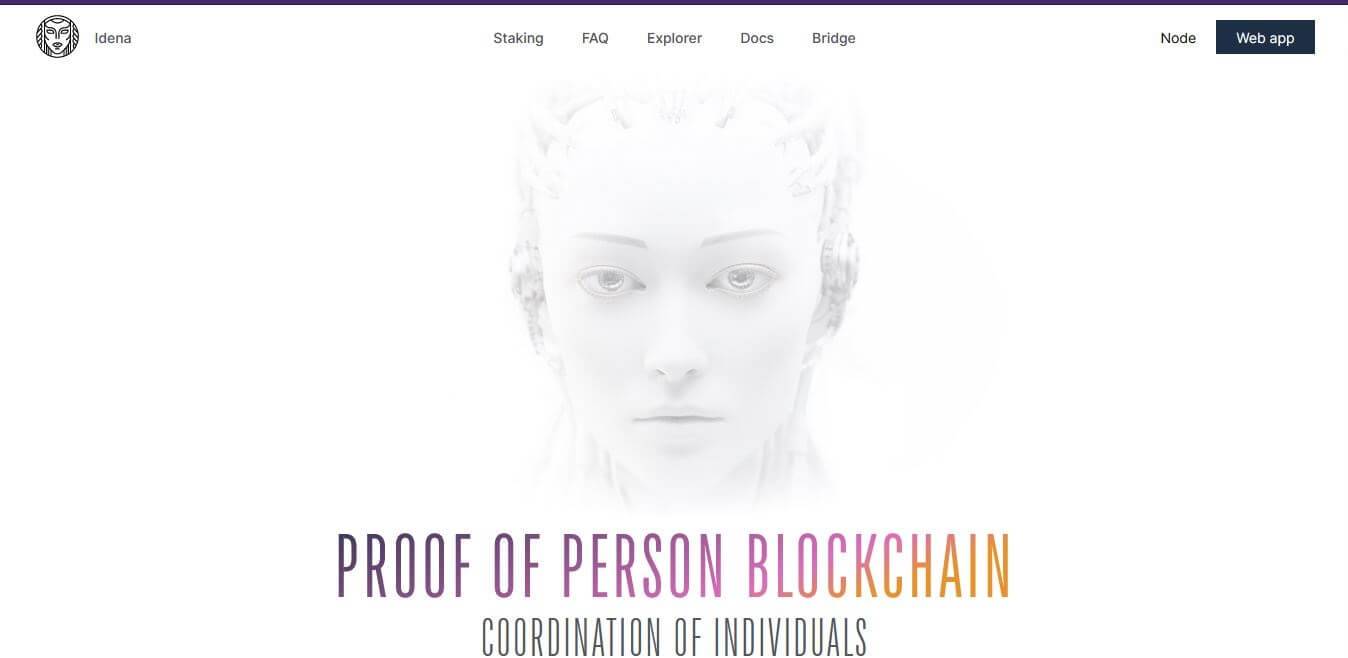
Idena is a proof-of-person decentralized identity system that operates on the one-person-one-vote principle to promote individual participation and prevent centralization of power and influence in blockchain governance and mining pools. It emphasizes network diversity in building inclusive and better blockchain ecosystems.
One of the key features of Idena is the requirement for individuals to prove their uniqueness to become a validator. This proof of personhood ensures that rewards are maximized for individual miners and prevents the centralization of capital in staking pools. Idena aims to increase network diversity and resist plutocracy by promoting individual mining.
Notably, Idena is known for the FLIP Tests, CAPTCHA-like puzzles involving human cognitive abilities that even AI-powered computer bots find difficult to solve. These tests prove user uniqueness without disclosing personal information, and every individual interested in running an Idena node solves these tests before they’re validated.
5. Selfkey
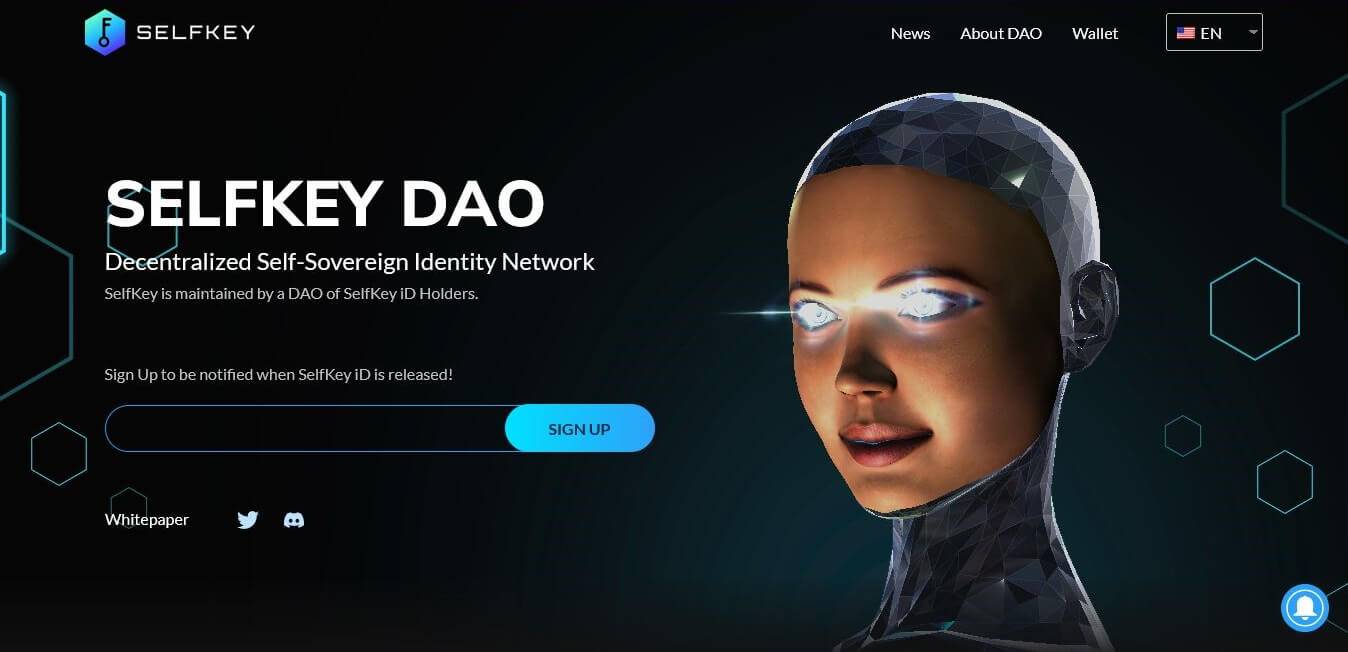
Selfkey is a DAO (Decentralized Autonomous Organization) that empowers people and organizations to take control of their digital identities. It’s driven by a community of focused individuals and offers several solutions, including identity wallets, a marketplace, and resources for developers.
One of its key components is the SelfKey ID, which empowers individuals to store and protect their digital identity, KYC documents, and digital assets such as NFTs. It also gives them access to Web3 platforms, DeFi exchanges, and banks through a one-click verification system.
The SelfKey Identity wallet keeps users’ data secure by storing it on their local devices. It is free, open-source, and accessible on all major platforms (Windows, Linux, and Mac). In addition, the wallet gives access to the Legal & Wealth Services (LWS) and the Incorporations Marketplace for opening businesses abroad.
6. Serto
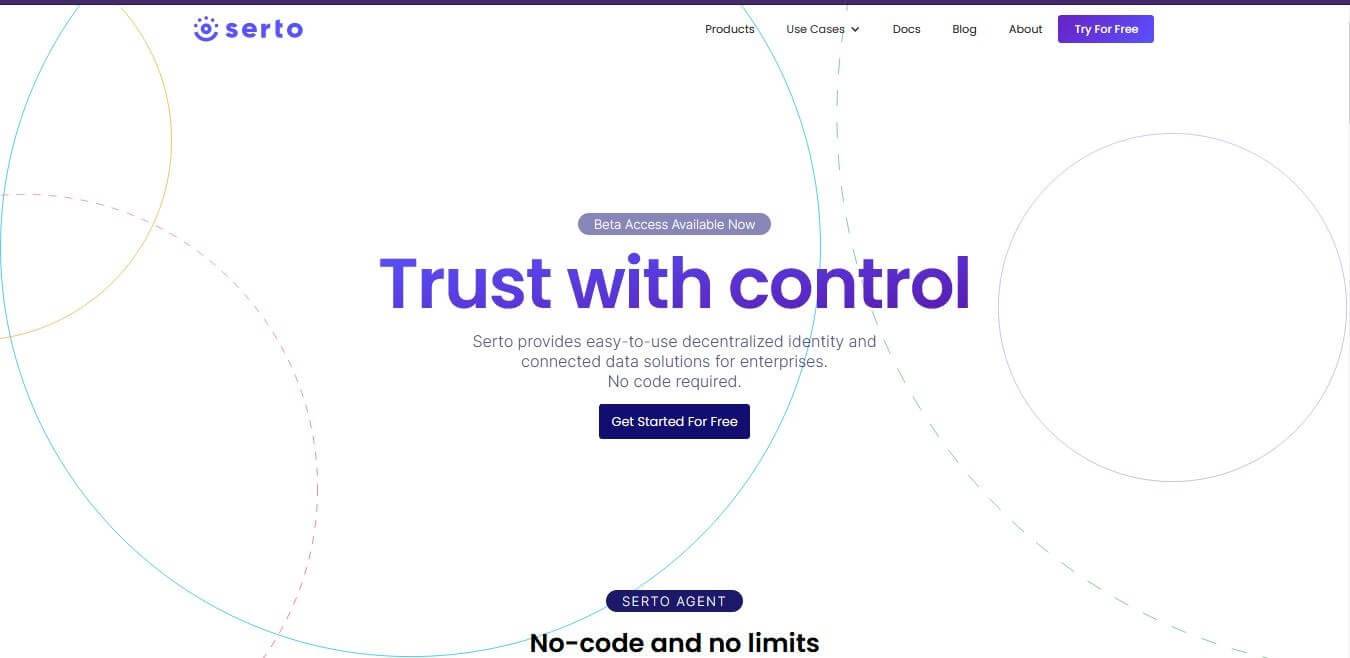
Serto is a decentralized identity and connected data solutions provider that aims to give enterprises control over their digital identities. It offers a variety of easy-to-deploy and future-proof solutions built on W3C open standards. It also prioritizes interoperability with multiple protocols to allow organizations to pick the options based on their specific needs.
Its core product, Serto Agent, allows users to build and manage decentralized identities and verifiable credentials without writing code. This development strategy simplifies working with identification systems for developers and business leaders.
Other products offered by Serto include Serto Search, a digital engine for discovering issuers represented by decentralized identifiers and their chains of trust, and Serto Schemes, a shared database for verifiable credentials schemas to enhance the creation, display, and verification of credentials.
7. Gitcoin

Gitcoin was founded in 2017 to empower communities dedicated to developing open-source projects that contribute to positive change. Its platform offers modular and permissionless protocols that empower users to create, manage and grow grant programs for projects across domains such as DeFi and Climate.
Gitcoin Passport, the network’s identity tool, creates trustworthy digital experiences built on a robust online reputation system. With it, users can store their BrightID, Proof of Attendance, and Ethereum Name Server records, showcase their achievements and connections, and access high-quality Web3 projects.
For communities, Gitcoin Passport offers a reliable solution to protect users and shared resources from Sybil attacks. By integrating Gitcoin-grade protection with just a few lines of code, communities can leverage the experience gained from safeguarding the Gitcoin Grants program.
Decentralized Identity Protocols Are Important
Decentralized identity platforms offer significant user control, security, and privacy advantages. Users gain greater control over their personal information, deciding who has access and easily revoking it if needed. Also, they allow users only to share the personal data they need to reduce exposure. Moreover, by distributing personal data, these protocols reduce the risk of large-scale data breaches. For these reasons, the protocols above and similar are valuable in today’s digital landscape.



